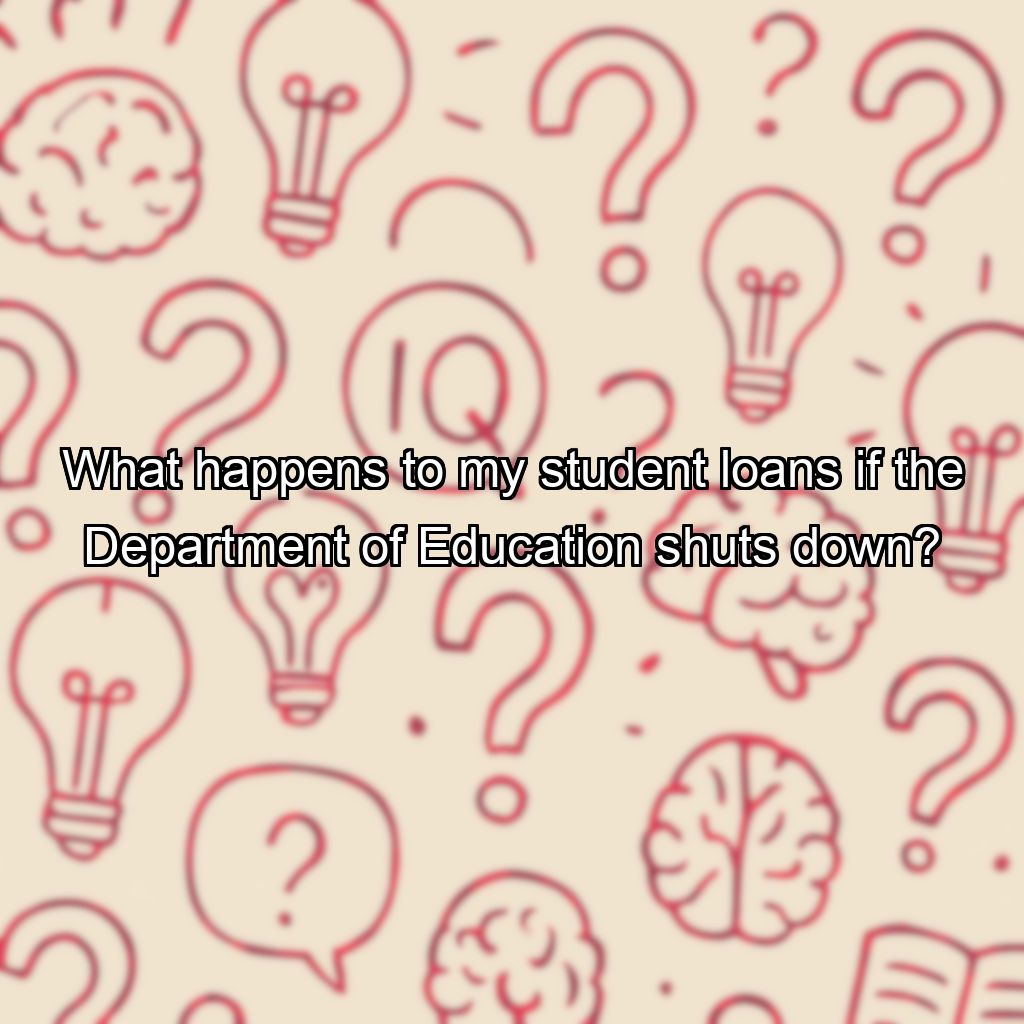What happens to my student loans if the Department of Education shuts down?

Impact of Department of Education Shutdown on Student Loans
If the Department of Education were to shut down, the handling of federal student loans would be temporarily affected, but essential functions related to student loans are designed to continue through established contingency plans. During a shutdown, the following would typically occur:
Continuation of Loan Servicing
Loan servicers would likely continue to process payments and provide customer service, as their operations are often considered essential. Borrowers would still be required to make payments, and late fees or default statuses would be managed as usual.
Loan Forgiveness and Default Management
Programs such as Public Service Loan Forgiveness (PSLF) or income-driven repayment plans may face delays in processing or updates, but existing loans would generally not be canceled automatically. Borrowers should stay informed through official channels.
Federal Student Loan Collections and Discharges
Collections activities, forbearance, and discharge processes could be temporarily suspended or delayed, impacting borrowers seeking loan forgiveness or experiencing financial hardship.
Legislative Action and Reauthorization
Most disruptions depend on whether Congress intervenes to reauthorize funding or pass emergency measures. Historically, student loan programs have been maintained during government shutdowns to ensure borrowers' payments and records are preserved.
In summary, while a shutdown could cause temporary disruptions or delays, your existing student loan obligations would typically remain in effect, and you should continue to make payments or communicate with your loan servicer to avoid negative consequences.